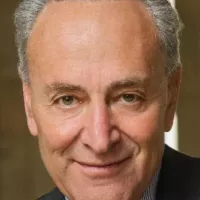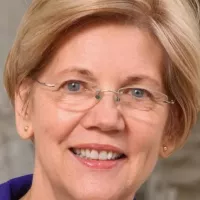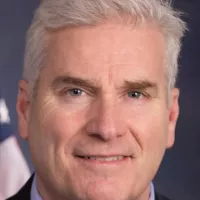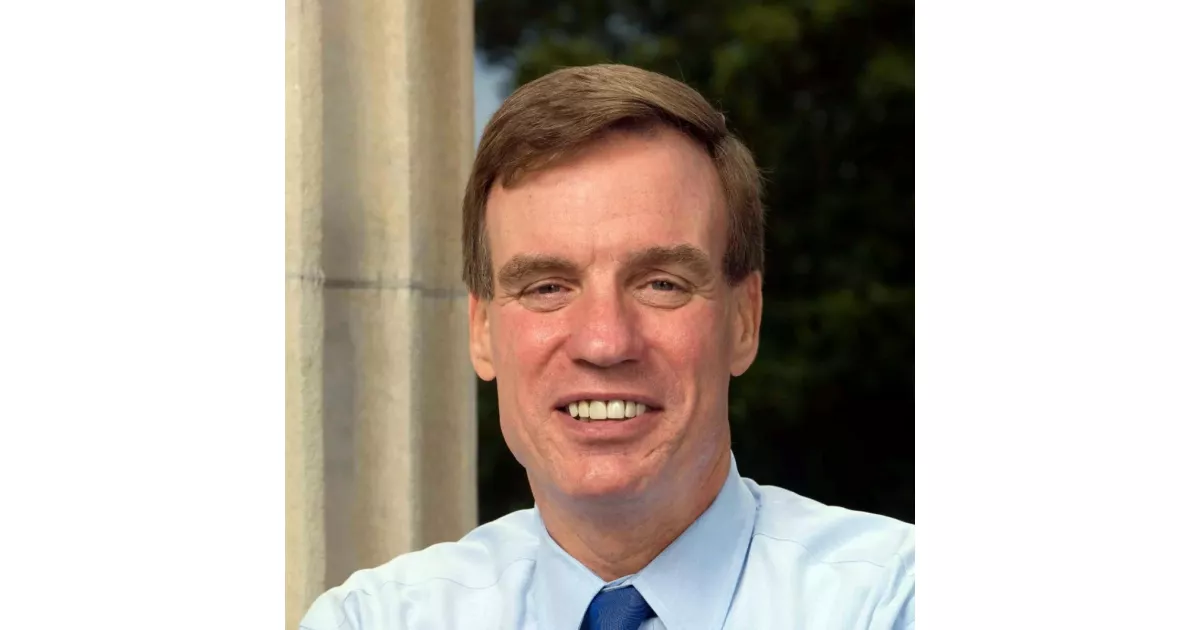How Mark Warner built a successful career. Explore key moments that defined the journey.
Mark Warner is an American politician and businessman who has served as a United States Senator from Virginia since 2009. A member of the Democratic Party, he previously served as the 69th Governor of Virginia from 2002 to 2006. Currently, he holds the position of Vice Chair of the Senate Democratic Caucus and Vice Chair of the Senate Intelligence Committee.
1980: Warner graduates from Harvard Law School and raises money for the Democratic Party
In 1980, Mark Warner graduated from Harvard Law School with a Juris Doctor and started raising money for the Democratic Party based in Atlanta.
1982: Warner ceases raising money for Democratic Party
In 1982, Mark Warner stopped raising money for the Democratic Party.
1989: Warner co-founded Capital Cellular Corporation
In 1989, Mark Warner co-founded Capital Cellular Corporation.
1989: Warner managed Douglas Wilder's gubernatorial campaign
In 1989, Mark Warner managed Douglas Wilder's successful gubernatorial campaign.
1993: Warner becomes Chairman of the state Democratic Party
In 1993, Mark Warner became chairman of the state Democratic Party.
1995: End of Warner's term as Chairman of the state Democratic Party
In 1995, Mark Warner's term as chairman of the state Democratic Party came to an end.
1996: Warner unsuccessfully ran for U.S. Senate
In 1996, Mark Warner unsuccessfully ran for the U.S. Senate against incumbent Republican John Warner.
2001: Warner campaigns for governor
In 2001, Mark Warner campaigned for governor as a moderate Democrat, building up a power base in rural Virginia.
2002: Warner uses 'rainy day fund'
After being elected in 2002, Warner drew upon a $900 million "rainy day fund" left by his predecessor, Jim Gilmore. He also campaigned for regional sales tax increases to fund transportation, but these were rejected by Virginians.
2002: Warner becomes Governor of Virginia
In 2002, Mark Warner assumed the role of the 69th Governor of Virginia.
2003: Warner influences college athletics
In 2003, Governor Mark Warner pressured the Atlantic Coast Conference to revoke an invitation to Syracuse University in favor of Virginia Tech.
2003: Democrats gain seats in Virginia House of Delegates
In 2003, Mark Warner's popularity may have helped Democrats gain seats in the Virginia House of Delegates.
2004: Warner chairs the National Governors Association
In 2004, Mark Warner chaired the National Governors Association.
2004: Warner reforms tax code
In 2004, Mark Warner collaborated with legislators and the business community to reform the tax code, decreasing taxes on food and some income while increasing sales and cigarette taxes, leading to a net tax increase of $1.5 billion annually.
November 29, 2005: Warner commutes death sentence of Robin Lovitt
On November 29, 2005, Governor Mark Warner commuted the death sentence of Robin Lovitt to life imprisonment without parole due to concerns about destroyed evidence.
October 2006: Warner declines to run for President
In October 2006, Mark Warner announced he would not pursue the Democratic nomination for the 2008 U.S. presidential election to avoid disrupting his family life.
October 2006: Warner declines presidential run
In October 2006, Mark Warner announced that he would not run for president, citing family reasons.
2006: End of Warner's term as Governor
In 2006, Mark Warner concluded his service as the 69th Governor of Virginia.
September 13, 2007: Warner announces Senate run
On September 13, 2007, Mark Warner announced his candidacy for the U.S. Senate seat being vacated by John Warner.
September 24, 2008: Warner holds lead over Gilmore
On September 24, 2008, Mark Warner held a 30-point lead over Jim Gilmore in a Washington Post/ABC News poll.
2008: Warner delivers Keynote Address and declines VP nomination
In 2008, Mark Warner delivered the keynote address at the Democratic National Convention and later withdrew himself from consideration as a potential vice presidential candidate after securing the Democratic nomination for the U.S. Senate.
2008: Warner delivers keynote address
In 2008, Mark Warner delivered the keynote address at the Democratic National Convention.
2008: Warner preparing to run for President
In 2008, Mark Warner was believed to be preparing to run for the Democratic nomination for president before suddenly announcing in October 2006 he would not run for president, citing family reasons.
2008: Warner elected to the Senate
In 2008, Mark Warner was elected to the U.S. Senate.
2009: Warner becomes Senator from Virginia
In 2009, Mark Warner assumed the role of senior United States Senator from Virginia.
2009: Warner votes for American Recovery and Reinvestment Act
In 2009, Mark Warner voted for the American Recovery and Reinvestment Act and submitted an amendment to track stimulus spending.
2009: Appointed chair of bipartisan task force on government performance
In 2009, Mark Warner was appointed chair of a bipartisan task force on government performance on the Senate Budget Committee.
2009: Warner appointed to Senate committees
In 2009, Mark Warner was appointed to the Senate's Banking, Budget, and Commerce committees.
2010: Warner works on Dodd-Frank Act
In 2010, Mark Warner collaborated with Republican Bob Corker on the Banking Committee to draft a key section of the Dodd-Frank Act, aimed at preventing taxpayer bailouts of failing Wall Street financial firms.
2010: Warner votes for Affordable Care Act
In 2010, Mark Warner voted for the Affordable Care Act (ACA), also known as Obamacare, and discussed adding an amendment package focused on health IT and wellness prevention to address healthcare costs.
2010: Lead sponsor of the Government Performance and Results Act
In 2010, Mark Warner was a lead sponsor of the Government Performance and Results Act (GPRA), which aimed to improve program performance across federal agencies.
2010: Warner requests Commission on Humanities and Social Sciences
In 2010, Mark Warner, along with others, requested that the American Academy of Arts and Sciences form The Commission on the Humanities and Social Sciences.
2011: Warner appointed to Senate Intelligence Committee
In 2011, Mark Warner was appointed to the Senate Intelligence Committee.
2011: Warner co-sponsors Startup Act
In 2011, Mark Warner was the original Democratic sponsor of the Startup Act legislation and partnered with Jerry Moran.
November 2012: Warner decides to remain in the Senate
In November 2012, Mark Warner announced he would remain in the Senate after considering a run for Virginia governor, citing his commitment to finding bipartisan solutions to the nation's fiscal challenges.
2012: Warner declines to chair DSCC
In 2012, Mark Warner declined the chair of the Democratic Senatorial Campaign Committee to avoid partisanship.
2012: Warner co-sponsors Startup Act 2.0
In 2012, Mark Warner partnered with Jerry Moran to introduce Startup Act 2.0.
March 2013: Announced support for same-sex marriage
In March 2013, Mark Warner publicly announced his support for same-sex marriage in a statement on his Facebook page.
April 17, 2013: Voted to expand background checks for gun purchases
On April 17, 2013, Mark Warner voted in favor of expanding background checks for gun purchases as part of the Manchin-Toomey Amendment.
May 21, 2013: Introduced the Digital Accountability and Transparency Act of 2014
On May 21, 2013, Mark Warner introduced the Digital Accountability and Transparency Act of 2014 (DATA) to standardize federal spending reporting.
November 6, 2013: Senate committee passed DATA
On November 6, 2013, the Senate Homeland Security and Government Affairs committee unanimously passed the Digital Accountability and Transparency Act (DATA).
2013: Warner becomes Virginia's senior senator
In 2013, Mark Warner became Virginia's senior senator after Jim Webb retired.
2013: Warner co-sponsors Startup Act 3.0
In early 2013, Mark Warner partnered with Jerry Moran to introduce Startup Act 3.0.
January 27, 2014: Responded to OMB's version of the DATA Act
On January 27, 2014, Mark Warner responded to the White House Office of Management and Budget's (OMB) marked-up version of the Digital Accountability and Transparency Act (DATA), expressing concerns about proposed changes.
April 10, 2014: Senate passed the Digital Accountability and Transparency Act
On April 10, 2014, the Senate voted by unanimous consent to pass the Digital Accountability and Transparency Act.
April 2014: Senate debated the Minimum Wage Fairness Act
In April 2014, the Senate debated the Minimum Wage Fairness Act (S. 1737; 113th Congress). Warner expressed a willingness to negotiate with Republicans about some of the provisions of the bill.
April 28, 2014: House passed the Digital Accountability and Transparency Act
On April 28, 2014, the House passed the Digital Accountability and Transparency Act in a voice vote.
2014: Introduced the Digital Accountability and Transparency Act
In 2014, Mark Warner introduced the Digital Accountability and Transparency Act.
2014: Warner narrowly reelected to Senate
In 2014, Mark Warner was narrowly reelected to the Senate, defeating Ed Gillespie by only 17,000 votes.
2014: Warner reelected to the Senate
In 2014, Mark Warner was reelected to the U.S. Senate.
July 2015: Cosponsored the Equality Act
In July 2015, Mark Warner and Tim Kaine cosponsored the Equality Act along with 38 other senators and 158 members of the House of Representatives, aiming to prohibit discrimination in housing, education, and the workplace.
2017: Expressed support for Second Amendment rights
In 2017, Mark Warner stated he was a strong supporter of Second Amendment rights and would advocate for responsible gun ownership for hunting, recreation, and self-defense.
2018: Changed position on Assault Weapons Ban
In 2018, Mark Warner changed his position on the 2013 Assault Weapons Ban in an op-ed and co-sponsored similar efforts.
2018: Warner supports easing banking regulations
In 2018, Mark Warner was among a minority of Senate Democrats supporting a bill to ease "key banking regulations", arguing that it would "right-size post-crisis rules imposed on small and regional lenders and help make it easier for them to provide credit".
January 2019: Introduced Background Check Expansion Act
In January 2019, Mark Warner was among 40 senators who introduced the Background Check Expansion Act, which aimed to require background checks for all firearms sales, including those by unlicensed sellers.
January 2019: Warner introduces the American Miners Act of 2019
In January 2019, Mark Warner was one of six Democratic senators to introduce the American Miners Act of 2019, aimed at amending the Surface Mining Control and Reclamation Act of 1977 to bolster the 1974 Pension Plan and prevent its insolvency.
June 2019: Warner introduces PAID AD Act
In June 2019, Mark Warner and Amy Klobuchar introduced the Preventing Adversaries Internationally from Disbursing Advertising Dollars (PAID AD) Act, aiming to modify U.S. federal campaign finance laws to prohibit foreign nationals from purchasing political ads on platforms during election years.
September 2019: Warner advocates for coal miner benefits
In September 2019, amid government shutdown discussions, Mark Warner joined five other Democratic senators in signing a letter to congressional leadership, advocating for legislation to permanently fund health care and pension benefits for retired coal miners.
2020: Warner defeats Daniel Gade
In 2020, Mark Warner defeated Republican nominee Daniel Gade in the Senate election.
2020: Warner reelected to the Senate
In 2020, Mark Warner was reelected to the U.S. Senate.
2025: Voted for the Laken Riley Act
In 2025, Mark Warner was one of 12 Senate Democrats who joined all Republicans to vote for the Laken Riley Act.
Mentioned in this timeline
Huawei is a Chinese multinational technology corporation headquartered in Shenzhen...

Basketball is a team sport played on a rectangular court...

Donald John Trump is an American politician media personality and...

Chuck Schumer is the senior United States Senator from New...
Facebook is a social media and networking service created in...

Elizabeth Warren is a prominent American politician and the senior...
Trending
45 minutes ago CarGurus Stock: Investment Board Increases Position; Analyst Downgrades Stock to Hold
45 minutes ago Australia faces Sri Lanka in T20 World Cup, Super Eights spot at stake.

45 minutes ago David Archuleta Reveals Childhood Abuse and Overcoming Suicidal Thoughts in Exclusive Interview.
46 minutes ago NYT Connections: Hints and Answers for the February 16th Puzzle

2 hours ago Tom Emmer, Minnesota Immigration, Operation Metro Surge: Praise and Fears in Twin Cities

2 hours ago DiZoglio faces Audit Obstacles: Judge and AG resist, legislature involved in Massachusetts fight.
Popular

Kid Rock born Robert James Ritchie is an American musician...
Randall Adam Fine is an American politician a Republican who...

Pam Bondi is an American attorney lobbyist and politician currently...

Barack Obama the th U S President - was the...
The Winter Olympic Games a major international multi-sport event held...

XXXTentacion born Jahseh Dwayne Ricardo Onfroy was a controversial yet...
